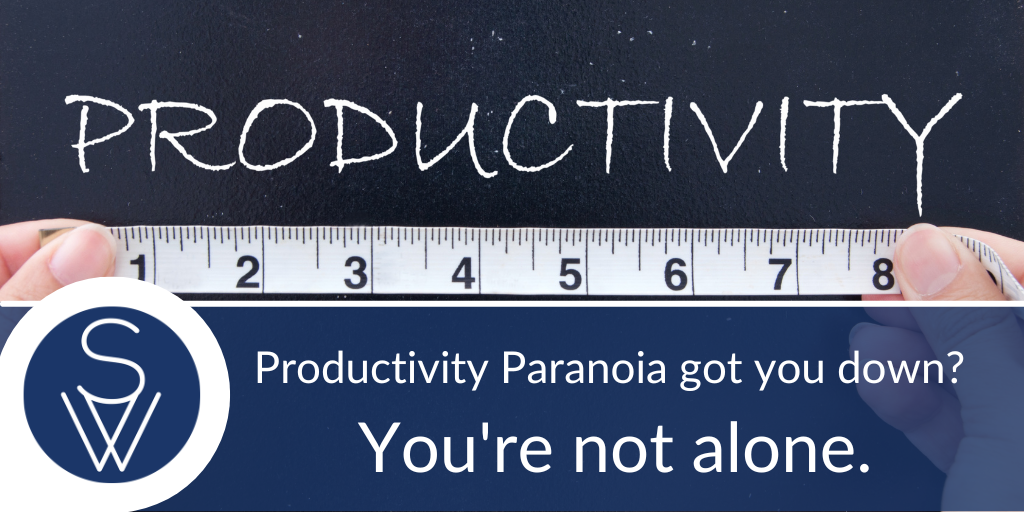A new study finds that an astonishing majority of managers worry that remote workers aren't actually working.
It's called Productivity Paranoia. Here's why you can't afford to go there - and what you can do, instead.
In January 2020, a mere 5% of full-time professionals worked remotely, under arrangements that were largely seen – and supervised – as exceptions to “normal” employment. Three months later, that number spiked to nearly 60% and continued to climb, shaking up the workplace as we knew it. It was a painful, abrupt transition, fraught with unknowns and steep learning curves. But it also opened up a whole new world of possibilities for working professionals.
Today, remote and hybrid working arrangements have progressed so far down the path to normalization that employees view them as more the rule than the exception. And they’re loving it.
Their managers? Not so much.
After decades of holding onto a set of core beliefs about how high-performing teams are built (onsite, all together, during rigidly enforced hours), many managers now struggle to accept that their preferred leadership style and methods of performance measurement may have gone the way of the dodo. Who can blame them? For most employers, especially in the urgency of those early days, it was only natural to view the empty offices, zoom calls, and non-standard hours as a necessary – but temporary – solution to a short-term problem.
Trust issues
Today, as the majority of knowledge workers push back on return-to-office mandates, many managers wonder how they can be expected to lead successful teams if those teams are no longer present to be led, observed, and coached like they used to. According to Microsoft’s 2022 Work Trend Index, 85% of managers today struggle to trust that their remote employees are actually working.
While strong arguments can be made for compelling teams to spend a portion of their working hours in shared spaces, today’s workforce seems united in believing that remote and hybrid are now the norm, not the exception. In fact, a growing body of evidence (including studies by Texas A&M, Ergotron, and work culture expert A Great Place to Work) indicates that remote workers are just as– or more – productive than their on-site counterparts.
Microsoft calls this trust gap “Productivity Paranoia,” a worry that, if indulged, will create a real danger for the viability of the team. As employees get the message that their presence is needed in the office because their boss doesn’t trust them to do their work, the more disengaged they’ll become. It’s a self-fulfilling prophecy.
How can managers push past this disconnect, close the trust gap, and remain competitive in the talent marketplace? Microsoft suggests three critical pivots that employers and managers need to make now:
- Prioritize and align performance standards: Set team and individual goals that strongly align with company objectives and values. More importantly, managers should collaborate with their teams to rethink and clearly define what employees should not Guiding principles built on what’s most important and what’s no longer necessary can redefine what success looks like.
- Build a new culture: Create a workplace culture that celebrates and rewards employee impact and focuses far less on measuring the how and when of employee activity.
- Communicate, communicate, communicate: Share insights, direction, and recognition with teams and individuals frequently and consistently. But also empower employees and managers to seek feedback and use it to build and improve new ways for the organization to work together.
The future of work is here—whether any of us felt ready for it or not. At SkyWater Search Partners, we are in daily communication with highly talented, in-demand candidates who cover the entire spectrum of workplace preferences, from 100% on-site to fully remote and everything in between. We specialize in finding the right talent for each client’s situation. If you would like to know more about how we can help you, please reach out. We would love to talk.









